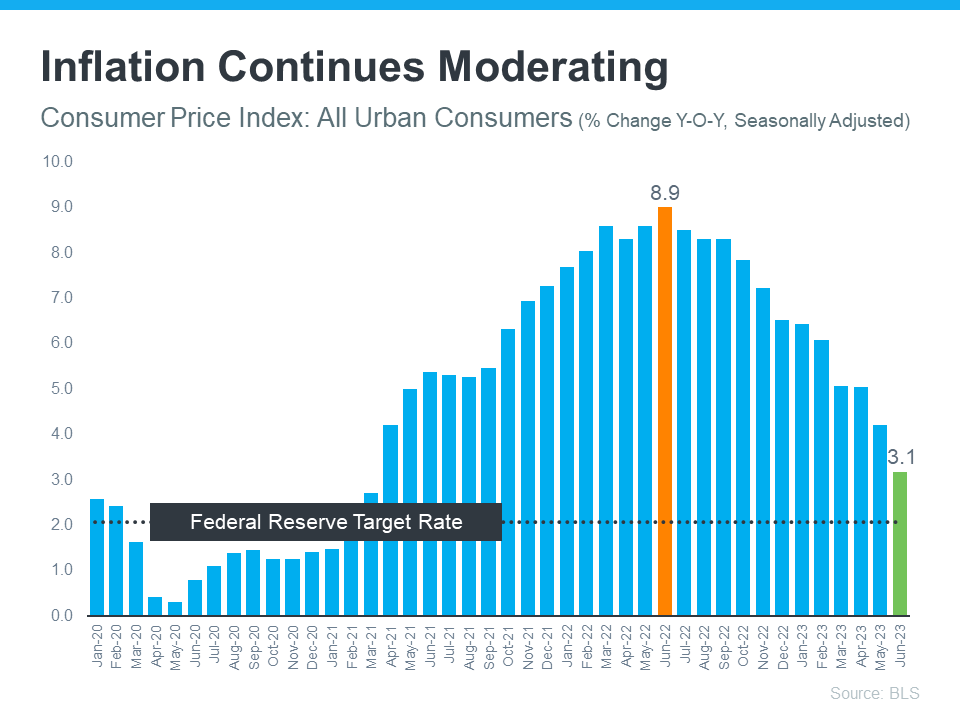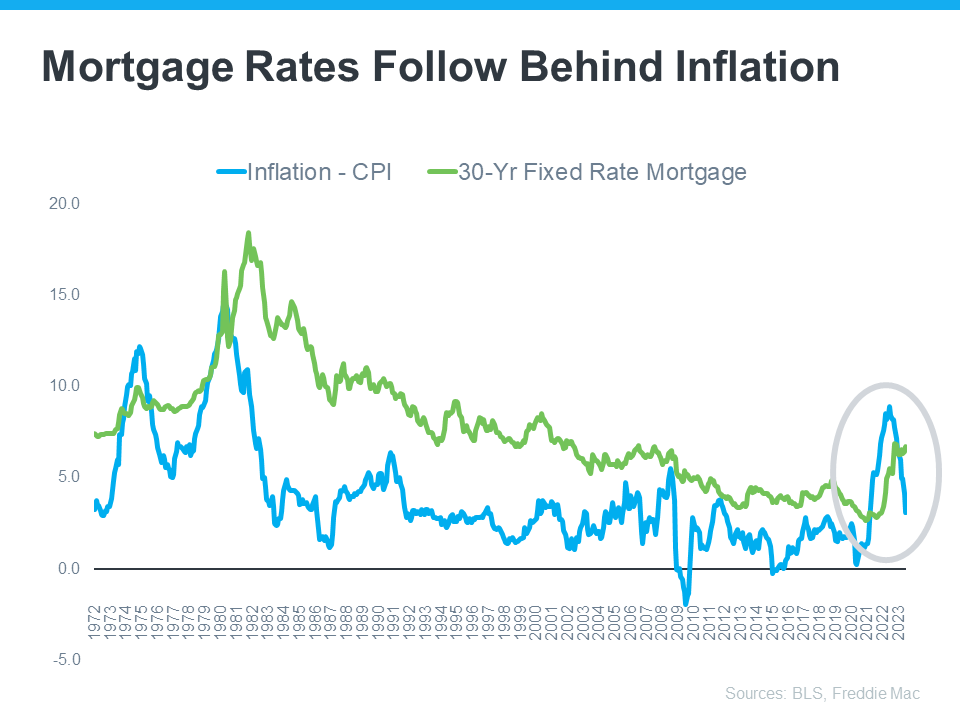How Seattle Inflation Affects Mortgage Rates
August 8, 2023
The news often covers the housing market and its relation to the Federal Reserve’s decisions. However, it’s important to understand how these decisions impact your home buying plans. Here’s a breakdown of what you should know.
The Fed is trying hard to reduce inflation. And even though there’s been 12 straight months where inflation has cooled (see graph below), the most recent data shows it’s still higher than the Fed’s target of 2%:
Despite progress in lowering inflation, the Federal Reserve remains cautious about halting its rate hikes too early and triggering a resurgence in inflation. As a result, the Fed recently raised the Federal Funds Rate once more. As Jerome Powell, Chairman of the Fed, says:
“We remain committed to bringing inflation back to our 2 percent goal and to keeping longer-term inflation expectations well anchored.”
Greg McBride, Senior VP, and Chief Financial Analyst at Bankrate, explains how high inflation and a strong economy play into the Fed’s recent decision:
“Inflation remains stubbornly high. The economy has been remarkably resilient, the labor market is still robust, but that may be contributing to the stubbornly high inflation. So, Fed has to pump the brakes a bit more.”
Even though a Federal Fund Rate hike by the Fed doesn’t directly dictate what happens with mortgage rates, it does have an impact. As a recent article from Fortune says:
“The federal funds rate is an interest rate that banks charge other banks when they lend one another money . . . When inflation is running high, the Fed will increase rates to increase the cost of borrowing and slow down the economy. When it’s too low, they’ll lower rates to stimulate the economy and get things moving again.”
How All of This Affects You
In basic terms, when inflation is high, mortgage rates also rise. Yet, if the Fed effectively reduces inflation, this could potentially result in lower mortgage rates, increasing affordability for homebuyers.
This graph helps illustrate that point by showing that when inflation decreases, mortgage rates typically go down, too (see graph below):
As the data above shows, inflation (shown in the blue trend line) is slowly coming down and, based on historical trends, mortgage rates (shown in the green trend line) are likely to follow. McBride says this about the future of mortgage rates:
“With the backdrop of easing inflation pressures, we should see more consistent declines in mortgage rates as the year progresses, particularly if the economy and labor market slow noticeably.”
Bottom Line
Mortgage rates are influenced by inflation. When inflation decreases, mortgage rates tend to follow suit. It’s a good idea to have a conversation for expert insights on housing market shifts and their implications for you. Feel free to reach out for personalized advice.






